Bovine Viral Diarrhoea (BVD) can be an invisible and costly threat to your farm. This is why all MQ contract reared calves are screened for BVD as they pass through our Red Tractor approved Calf Collection Centres.
Bovine Viral Diarrhoea or BVD is a highly contagious viral disease of cattle. It is one of the biggest disease issues
facing the UK cattle industry. BVD has been estimated to cost between £13 and £31 per cow in Great Britain.
The national cost could be as high as £61M per year.
The Virus
Any animal infected with the virus can quickly spread it to others. However, the main source of infection comes in the form of a ‘persistently infected’ animal, referred to as a ‘PI’.
A PI animal is produced when a pregnant cow contracts the BVD virus during the first 120 days of her pregnancy. Once born, PIs will then shed high volumes of the virus into their environment for life. They are therefore the most significant source of BVD infection to other cattle.
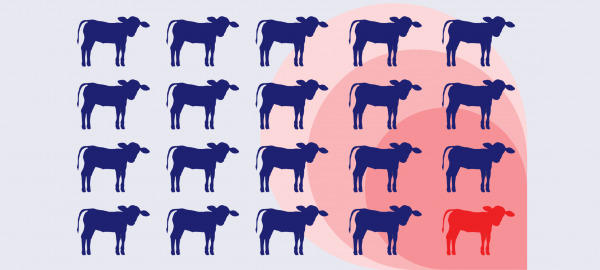
When a PI calf is born, they serve as an active and prolific source of infection to the rest of the herd throughout their lifetime. They ‘shed’ the disease when eating, drinking, urinating, and defecating, quickly transmitting the disease to others in the group.
PIs often only account for 1 or 2 out of every 100 animals in a herd. It is contact with these PIs that leads to infection of other animals within your herd.
Whilst inside a host, BVD can mutate and quickly become fatal for the carrier. If there are multiple BVD PI animals in the herd, the mutation in one animal can trigger a mutation across the infected animals in the group, causing numerous fatalities.
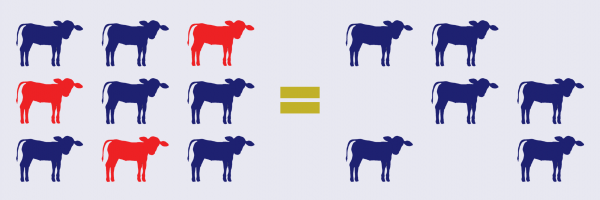
What are the impacts of BVD?
The effects of BVD on a herd are variable, ranging from severe intestinal disease to less threatening cases such as reduced food intake. Major impacts include:
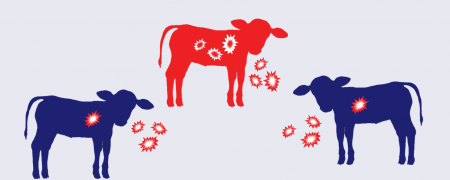
Weakened Immune Systems
A large concern amongst livestock farmers is the immunosuppressive nature of the virus, particularly on the more vulnerable youngstock. A weakened immune system can make infected animals an easier target for other diseases and allow their effects to be more severe.
Production Impacts
Perhaps the most extensive is the impact the disease has on herd production. This can often go unnoticed or be attributed to other factors.
BVD negatively affects fertility in both male and female cattle. The virus contributes to heavily reduced conception rates and early embryonic fatalities, as well as abortion. Early embryonic deaths can sometimes be misdiagnosed as a return to oestrus and generalised as poor fertility within the herd.
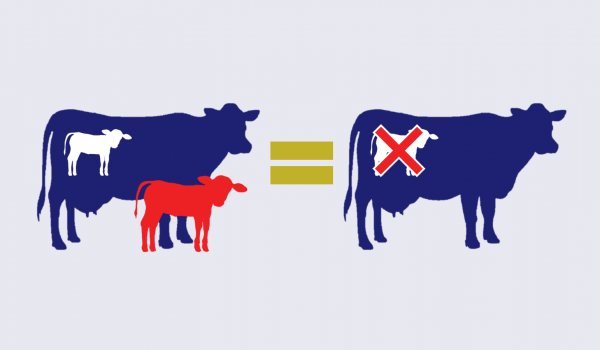
What are the costs?
As with the effects of BVD, the costs can be variable depending on case severity. The financial impacts quickly begin to stack up when you consider the money spent on feeding and housing infected animals, rearing costs, treatments for diseases that BVD granted access to your animals, the decline in the herd’s production, calf replacement and, ultimately, the disposal of infected livestock.
Estimates have been published, to provide a guide to farmers’ costs.
Financial risk of severe disease:
- Potential losses of up to 10% of your herd
- Cost per heifer could be between £1980 – £2260
- The cost per cow could average around £1700
- For dairy – a prolonged calving interval, passing 420 days could cost an estimated:
- £7.21/day per 6,000 litre cow
- £9.28/day per 10,000 litre cow
- The cost per abortion could average £630/case
Total costs per 100 cows:
- £13,330 UK 1998 (Wright)
- £9,000 UK 2003 (Novartis: 280,000 cows)
- £10,820 Scotland 2011 (Scottish government)
- £27,300 with another disease 2003 (Houe)

